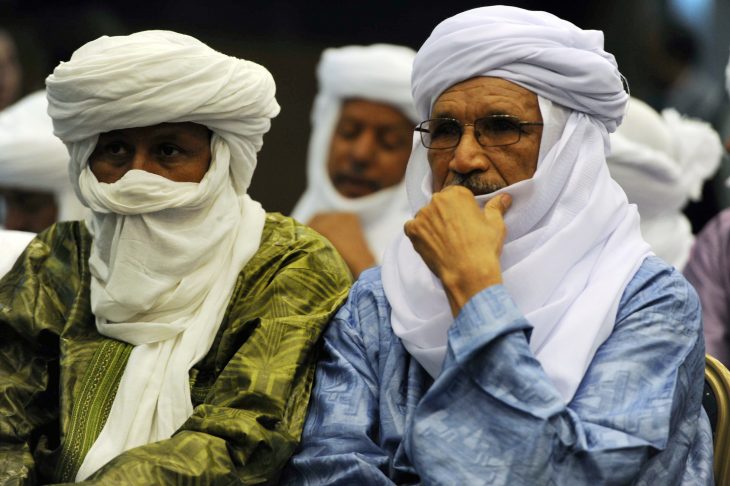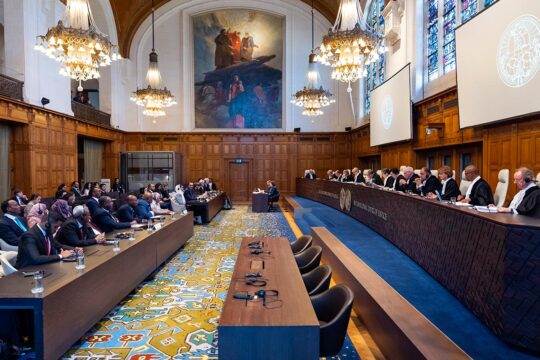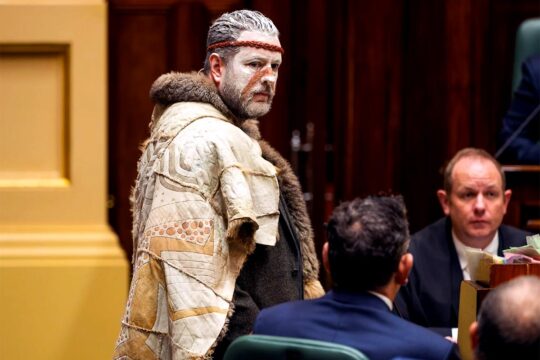If all unfolds as planned, the Coalition of Azawad Movements (CMA), a mainly Touareg rebel movement in northern Mali, will on Saturday June 20 in Bamako add its signature to the Algiers Peace and Reconciliation Agreement.
Mali’s government, apparently wanting to believe in the good faith of the CMA, has already announced a series of initiatives aimed at strengthening the peace process as soon as they have signed, according to Studio Tamani, a project of Fondation Hirondelle, which creates and supports media in crisis zones.
“The government is committed to setting up a Truth, Justice and Reconciliation Commission, organizing a national reconciliation conference and drawing up a national charter for peace,” Prime Minister Modibo Keïta promised. Bamako also said it would also ensure that “the statute of traditional authorities is recognized, that law 2012-025 of July 12, 2012 on reparations for victims of the January 17, 2012 rebellion and the March 22, 2012 uprising is passed”. It also plans to “organize discussions in northern Mali, regional and national grassroots fora and meetings between and among communities”, according to the Prime Minister.
President dismisses doubters
But in Mali, some people doubt that the CMA, which now controls the northern town of Kidal, really wants to end the armed conflict. President Ibrahim Boubacar Keïta, as if seeking to confront the Touareg coalition with its responsibilities, has dismissed such doubts and called on the international community to commit its support after the signing of the peace agreement on June 20. “We have high hopes that on June 20, here in Bamako, our brothers who have not yet signed this peace deal will do so, thus sealing the end of a process,” Studio Tamani quoted the head of state as saying at a meeting last week between the UN mission in Mali (MINUSMA) and the country’s religious leaders. The president (known as “IBK”) nevertheless recognized that the future “will not be easy”. “We will need modesty, humility, faith in human solidarity, and the support of MINUSMA, as well as the whole international community,” he said.
Mali’s government put a preliminary stamp on the Algiers peace and reconciliation agreement on March 1, before signing it on March 15 with certain rebel groups.
Azawad demands
The Azawad movement is based on Touareg separatist demands in northern Mali. Three of the five members of the Coalition of Azawad Movements (CMA) refused to sign the peace deal, calling for additional talks. But on June 5 in Algiers, following additional talks with the government in Bamako, they announced they would sign the agreement on June 20.
The agreement provides for Regional Assemblies but, as the government wished, neither autonomy nor federalism for the north. The CMA had demanded “official recognition of the Azawad movement as an entity”, to be governed by an inter-regional assembly, and an 80% quota of Azawad people in the security forces.
Northern Mali fell in 2012 to Jihadist forces linked to Al-Qaïda, after the army was routed by rebels linked to these forces, who were subsequently forced out.
The Jihadists were scattered and partially chased out of the region by an international military operation launched in January 2013 at the initiative of France, and which is still ongoing. But large parts of the north are still beyond the control of the government in Bamako.







